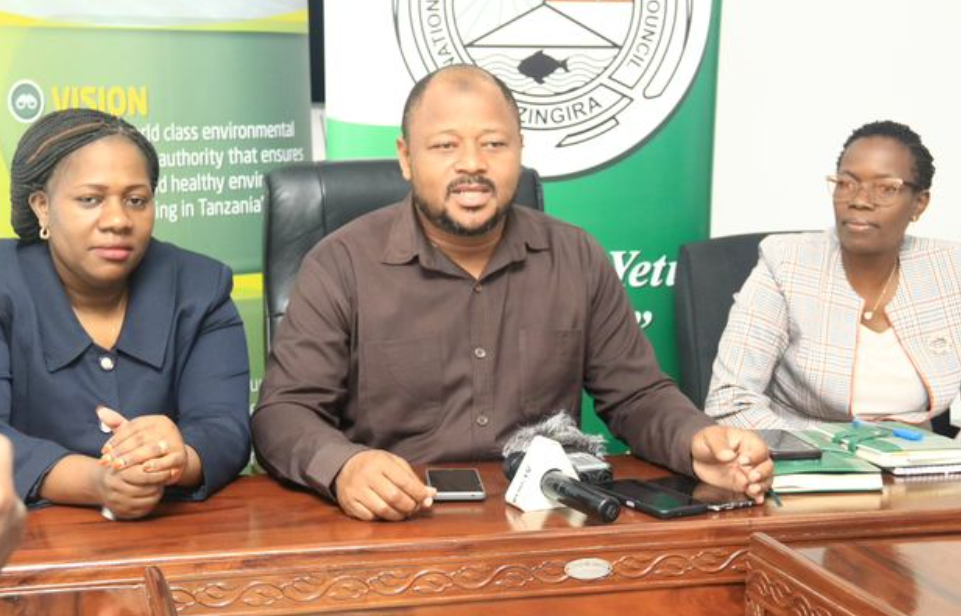Dar es Salaam. The National Environment Management Council (NEMC) has mandated that all projects without Environmental Impact Assessments (EIAs), and those with assessment certificates must provide annual feedback as required by law.
NEMC emphasized that project owners and leaders of non-evaluated projects must comply, as the council will begin inspections in August 2024. Additionally, starting the week of June 18, inspections will commence on projects with certificates that fail to submit annual assessments.
Hamadi Kissiwa, the Acting Director of Compliance Promotion and Monitoring at NEMC, revealed that only an estimated ten percent of projects with EIA certificates submit their annual environmental assessments.
“Very few projects submit their inspection certificates, leading to conflicts between investors and residents in various areas,” Kissiwa stated.
He cited an example, “Imagine a scrap metal melting project located in residential areas causing noise, odor, and fire hazards. Compliance assessments could help us provide recommendations. We can determine whether the project predated the residents or vice versa and advise accordingly.”
Kisiwa emphasized that annual reviews are essential for recommending improvements that contribute to the sustainability of projects and the environment.
“Next week, we will start with those holding certificates first, as the Environmental Management (Environmental Impact Assessment and Audit) (Amendment) Regulations make the importance of this clear,” he stressed, adding that the law prescribes penalties for those who violate these regulations.
Edika Masisi, the Acting Director of Environmental and Social Impact Assessment, urged project owners who have not conducted environmental assessments to do so immediately to avoid inconvenience. He noted that NEMC has given all project owners until August to complete their assessments.
Highlighting sectors facing challenges, Masisi mentioned small and medium-scale miners, with communication and energy sectors leading in conducting EIAs before starting projects.
Failure to perform assessments leads to conflicts that could have been resolved before project initiation. “For instance, miners might release toxic water into the environment. The problem could be natural due to local rock formations, not the project itself, but conflicts arise because no prior assessment was done,” Masisi explained.
Leaders identified a lack of understanding among investors, many of whom are foreigners, and poor urban planning as reasons for projects lacking environmental assessments.

Stakeholders Highlight the Importance of Assessments
Stephen Msechu, a board member of the Tanzania Trade and Investment Coalition (TATIC), criticized NEMC for their delayed action, questioning how projects start without assessments.
“How does one get a license to start a project without an assessment? The issue might be with NEMC or other government institutions. However, if they’ve woken up to this need, it’s a positive step. They must enforce this for both private and public projects because you find schools built in residential areas or roads without drainage,” Msechu, also a lawyer, commented.
Dr Aidan Msafiri, UN Ambassador for Environmental Issues and Climate Change, outlined four key reasons for the necessity of assessments, starting with, “There is no planet B.”
“The land we have is finite, but the population is growing. Resources remain the same; hence, a long-term strategy and periodic evaluations are essential,” said Dr Msafiri, who is also the Director of the Development and Environment Institute (KCDE).
He emphasized that these assessments are crucial for sustainable communities and their well-being. Additionally, he highlighted the importance of soil quality, as it supports food production and biodiversity. A decline in soil quality would render it unproductive.
“EIA also aids in urban planning, housing arrangements, and natural habitats for wildlife. In the last 100 years, the world has lost biodiversity at an alarming rate,” Dr Msafiri added.



This article? It’s got some interesting ideas, definitely. You’ve touched on a few good points, but it feels like there’s more to explore. Digging a bit deeper next time could really add value. On the plus side, you are thinking outside the box, which is great. Your writing style gets the point across, but it could use a bit more energy. The examples are decent, but adding some spice wouldn’t hurt. I’m not saying it’s bad, just that there’s room for improvement. Consider tightening up your arguments and including more compelling facts. You’ve got potential. Keep pushing yourself, and your next piece could be truly impressive. Keep at it! Your next article might just blow me away. Or maybe not. We’ll see.
NEMC issues ultimatum for environmental impact compliance – Habitat Media
[url=http://www.gtdgs47151jh4j41ct3qo5t78567v5wks.org/]uijkbzrev[/url]
ijkbzrev http://www.gtdgs47151jh4j41ct3qo5t78567v5wks.org/
aijkbzrev